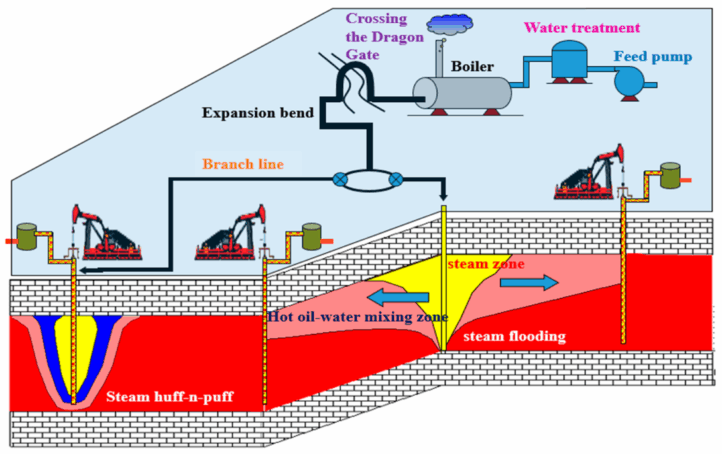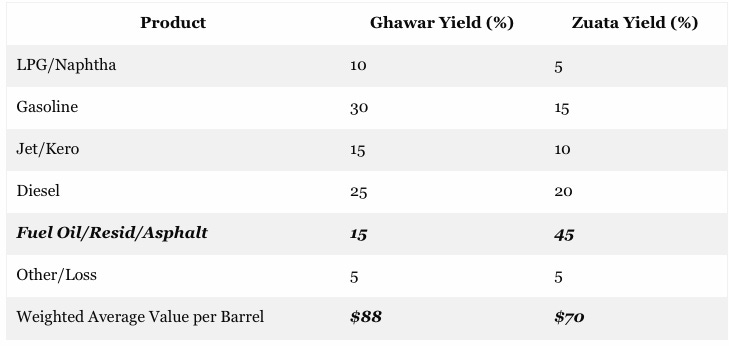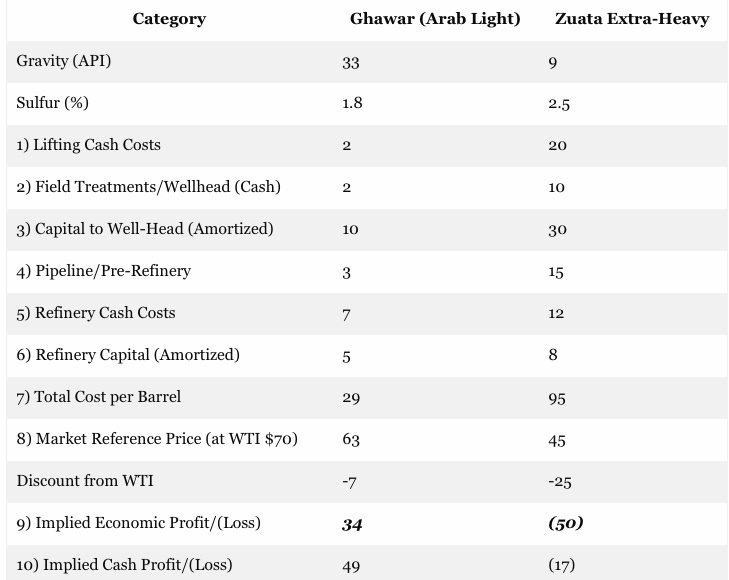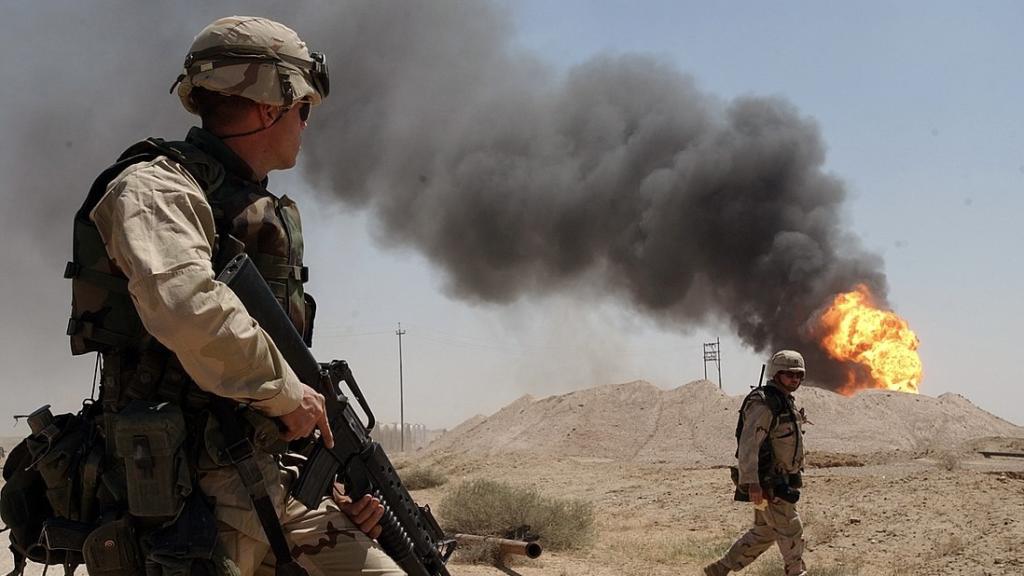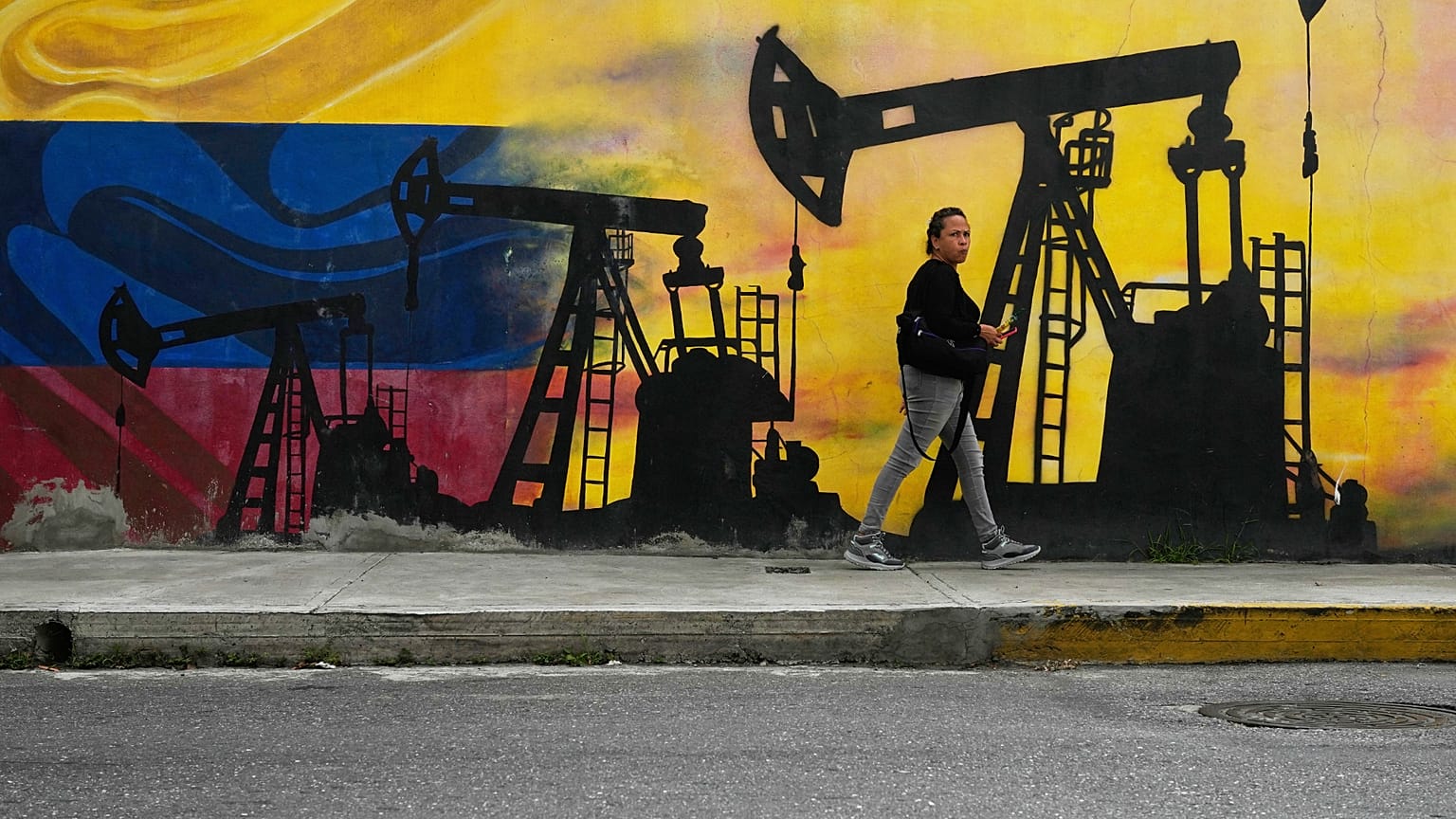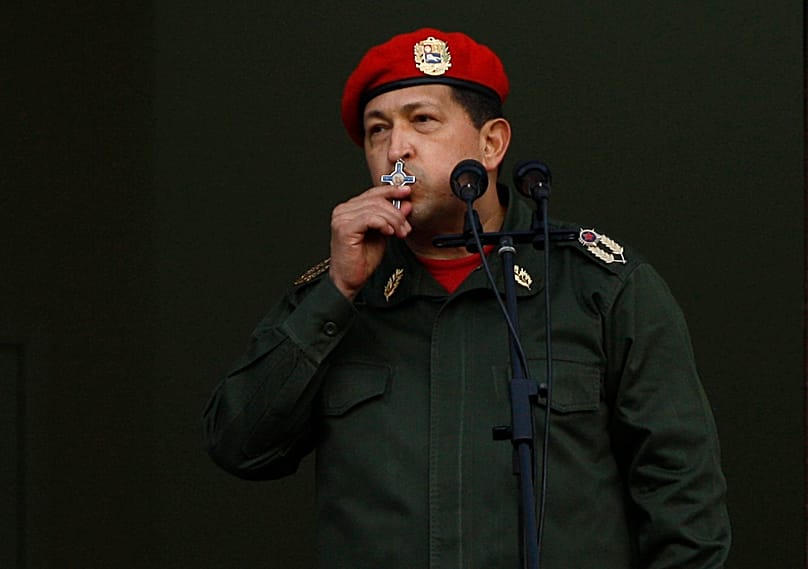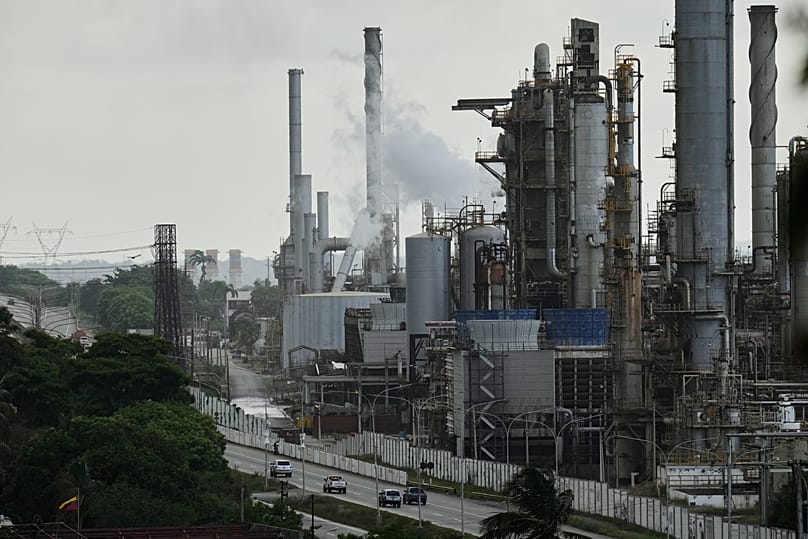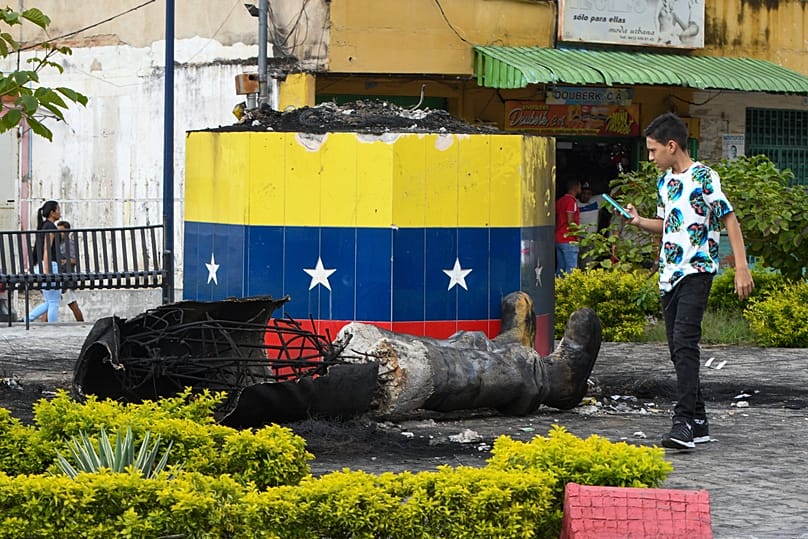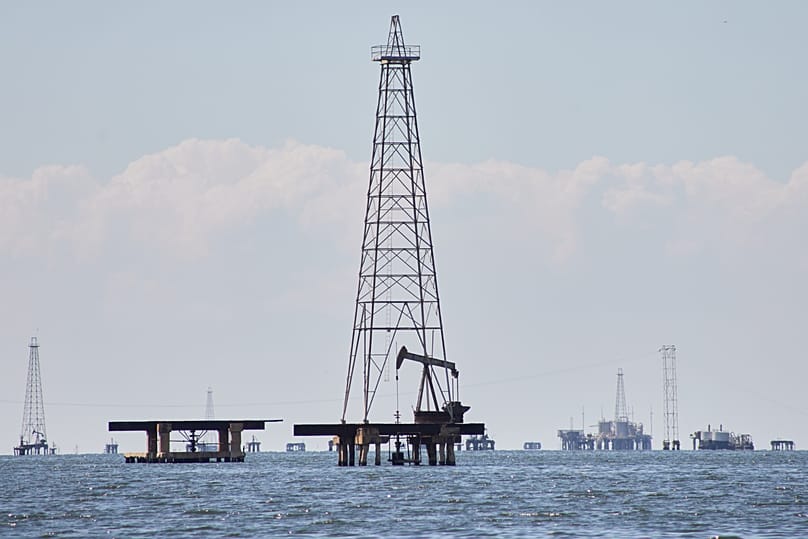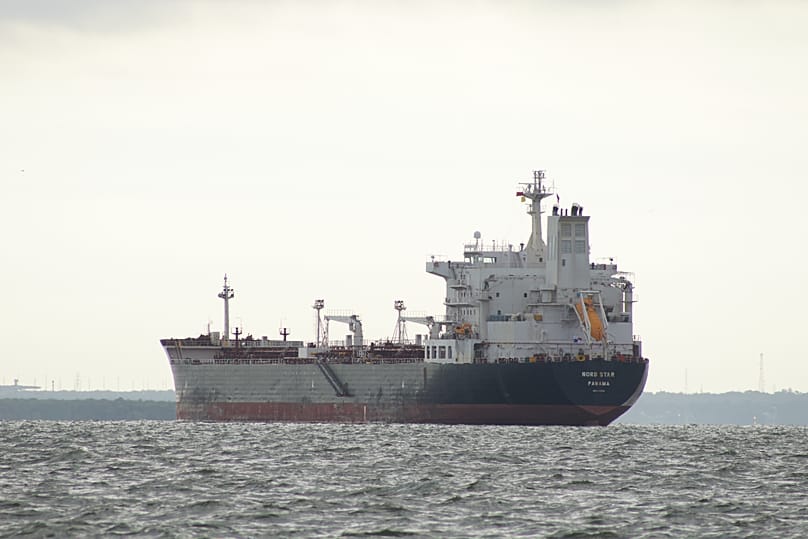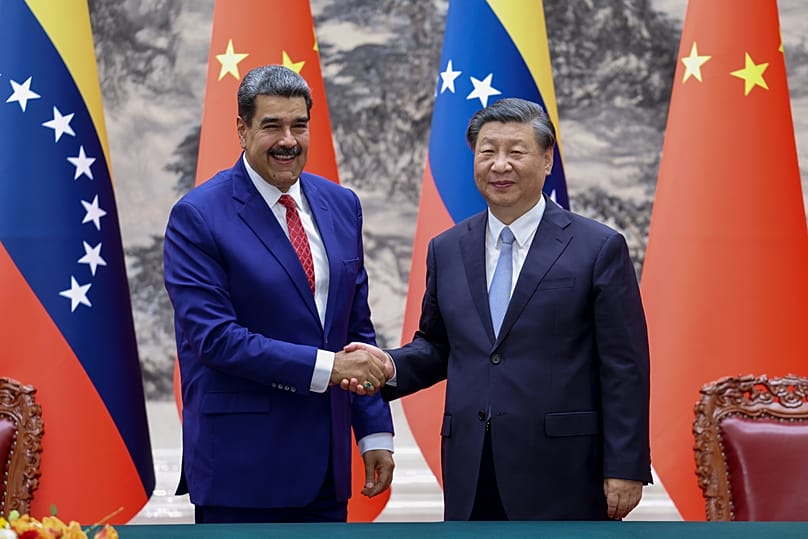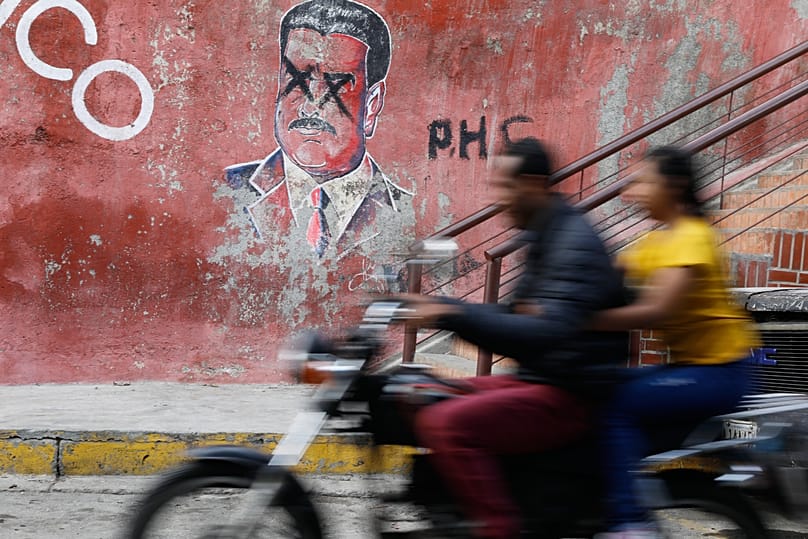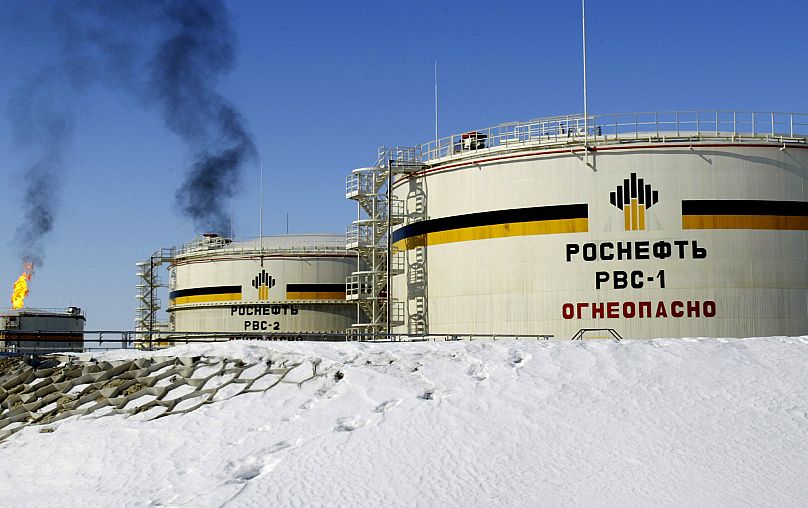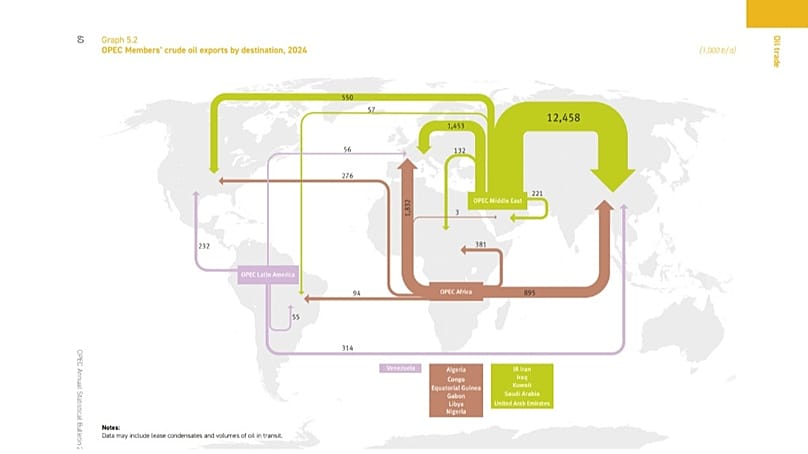Russian imperialism: A historical approach
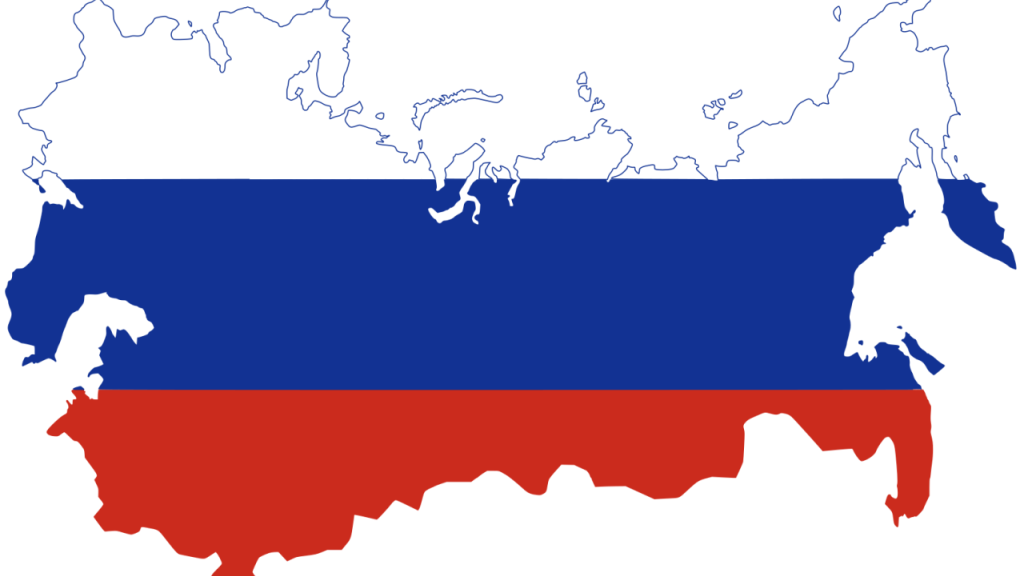
First published at Europe Solidaire Sans Frontières.
[ESSF editor’s note: We reproduce here a portion of the second chapter of Zbigniew M. Kowalewski’s work, Révolutions ukrainiennes, 1917-1919 & 20141, which presents the historical characteristics of Russian imperialism. We have not reproduced its original footnotes. This fundamental book was released in Paris in September 2025. It is the product of several decades of research by the author on the missed encounter between the Russian and Ukrainian revolutions of the early twentieth century, as well as on the upheaval of 2014.2]
Today, in a war decisive on a global scale, the Ukrainian nation is struggling to preserve its independence, won only 30 years ago, after centuries of domination and relentless Russification. These were intended to make Ukraine a variation of the “trinitarian” Russian nation (Russia, Ukraine and Belarus), imagined during the Tsarist era and claimed by Vladimir Putin. The Russian ruling class is thus fighting for the revival of a Russian imperialism in full decline which, without control over Ukraine, would risk disappearing from the historical stage.3
In 1937, at a reception organised to mark the 20th anniversary of the October Revolution, Joseph Stalin raised a toast “to the destruction of all enemies—them and their families, down to the last one!” As Georgi Dimitrov4, an eyewitness, noted in his diary at the time, whilst raising this toast, Stalin added that the tsars had “accomplished a good thing: they had assembled an immense State, extending to Kamchatka”,5 and “we, the Bolsheviks, have consolidated and strengthened it as a single and indivisible State”. Consequently, “whoever seeks to detach a part or a nationality from it is an enemy, a sworn enemy of the State and the peoples of the USSR. And we shall destroy such an enemy, even if he is an old Bolshevik; we shall destroy all his kin, his family. We shall exterminate without mercy anyone who cries out, by his actions and his thoughts (yes, and his thoughts), against the unity of the socialist State. We shall exterminate all these enemies to the end, themselves and their lineage!”
At all times, Russian imperialism has rested upon the idea of “gathering the Russian lands” and building “Russia one and indivisible”. Throughout the historical phases of its development, since the Tsardom of Russia (1547–1721), this imperialism has always been — and remains — as singular as the social formation of Russia itself. In elaborating his theory of “modern capitalist imperialism”, Vladimir Lenin emphasised its relative weakness, whilst “military-feudal imperialism” was stronger there. Describing the latter as feudal was an excessive simplification. From the mid-sixteenth century, undoubtedly, in the era of Ivan the Terrible,6 the Russian social formation essentially combined two different pre-capitalist modes of exploitation. The first, feudal, rested upon the extortion of surplus labour from peasants, in the form of rent, by landowners. The second, tributary, probably modelled on that of the Ottoman Empire, levied a tax on peasants for the benefit of the state bureaucracy. It was the latter that dominated in this combination of modes of exploitation.
In the Soviet Union, the Stalinist dogma of the unilinear development of humanity, with its five stages, held sway. The tributary mode of exploitation had no place there, all the more so as it could be associated (superficially, but not without reason) with the domination of the Stalinist bureaucracy. Certain Soviet historians, without clearly transgressing this schema, skilfully circumvented it by speaking of a “State” or “Oriental” feudalism, distinct from “private” “Western” feudalism. From the mid-seventeenth century, and almost until the abolition of serfdom in 1861, the third form of exploitation — the most terrible for the peasantry — into which Russian serfdom had actually degenerated, was slavery, including the trafficking of human beings.
A minimal surplus product
None of these modes of exploitation represented (contrary to the discursive habits claiming to be Marxist) a mode of production, because they did not manage to subordinate the productive forces either formally (without reorganising the production process) or really (by reorganising the production process). They therefore did not systematically guarantee their sustainable development.
However, it was on the basis of these modes of exploitation that the Russian State was formed in its singularity. From 1565 to 1572, Ivan the Terrible unleashed the very first Great Terror in Russia, the oprichnina,7 before drowning in it himself. As Ruslan Skrynnikov, one of the leading specialists on this tsar’s reign, observed, “certain of its practices contained, as if in embryo, all the subsequent development of the absolutist noble and bureaucratic monarchy”. Indeed, it carried within it the germ of all Russian despotic regimes, up to those of the twentieth and twenty-first centuries.
Another contemporary historian, Leonid Milov, formulated highly illuminating theses on the particularities of “the history of Russia as a society with a minimal total surplus product”. Evoking the natural and climatic conditions of agricultural production, he showed that central Russia depended on a very brief agricultural season, due to the climate — from early May to late September (in Western Europe, this generally ran from early March to late November) — and the predominance of lands poor in humus.
These two factors resulted in “low fertility, and therefore, a low volume of the society’s total surplus product, this until the mechanisation of this type of activity”, which “produced, in this region, for centuries, the conditions for the existence of a relatively primitive agricultural society”. Consequently, “in order to obtain a minimal result, it was necessary to concentrate labour, as much as possible, within a relatively short period of time. The individual peasant farm could not achieve the indispensable degree of concentration of efforts during the objectively determined agricultural work seasons”, such that its fragility “was compensated, throughout almost the entire thousand-year history of the Russian State, by the very great role of the peasant commune”.
Unity of opposites
Peasants’ surplus labour could only be extorted — to a large extent or even entirely — at the expense of the labour necessary for their own reproduction, that is, by methods of absolute exploitation (rather than by relative exploitation, based on increasing labour productivity). This was not possible without imposing upon them the harshest serfdom regime, all the more so as, given the general conditions of production, a strong communal organisation of labour was indispensable. The necessity of “optimising the size of the total surplus product” — of increasing it in the interest of state apparatuses and the ruling class — was pressing, but “on the path of this ’optimisation’, that is, of the objective necessity of intensifying peasant exploitation, stood this same peasant commune, bastion of local cohesion and vector of peasant resistance”.
From this was born “a sort of unity of opposites: what counterbalanced the inevitable existence of the commune was the most brutal and severe variant of personal dependence of each member of this organism”. The impossibility of overcoming this contradiction without a considerable development of productive forces, which pre-capitalist relations of exploitation did not permit, had a major consequence for the State. Its role was thus to “create a monolithic and powerful ruling class, capable of eradicating or neutralising the defence mechanisms of the agrarian commune in the process of daily exploitation of the peasantry”. Milov summarises this process thus:
The inevitability of the commune’s existence, conditioned by its productive and social functions, ultimately gave life to mechanisms of extreme severity and brutality for extracting an optimum surplus product. Hence the emergence of a serfdom regime, which managed to neutralise the commune as a fulcrum of peasant resistance. In turn, this serfdom regime became possible only due to the development of the most despotic forms of state power—the Russian autocratic regime.
It was this autocratic regime that managed to weld together the ruling class.
Where does the periphery begin?
At the same time, however, “the extremely extensive character of agricultural production and the objective impossibility of intensifying it meant that the principal historical domain of the Russian State could not support an increase in population density. Hence the constant necessity, over centuries, for the population to migrate towards new territories in search of more fertile arable lands, more favourable climatic conditions for agriculture, etc.” Moreover, “migratory processes went hand in hand with the strengthening of an absolutist State, capable of controlling and defending vast zones of the country”, and hence, with the constitution of considerable armed forces, although “the extremely small size of the total surplus product objectively created very unfavourable conditions for the formation of the so-called superstructure above the base structures”.
This secular colonial, military and state expansion towards the south, south-east and east progressively encompassed vast zones, increasingly extensive “allogene” peripheral territories and increasingly distant neighbouring countries, victims of conquest. This expansion was accompanied by several hundred years of struggle by the Tsardom of Russia, then the Russian Empire (1721–1917), for access to ice-free maritime ports, in the west and east. Hence the legitimate questions, to which it is so difficult to respond correctly: “When did Russian colonisation begin—with the occupation of Kazan, an ethnically foreign city, or of Novgorod, ethnically close?” The Republic of Novgorod fell to the Moscow army in 1478,8 and the Khanate of Kazan in 1552.9
“Where are the borders of the Russian metropole situated, where do the Russian colonies begin, and how can they be distinguished?” For these lines of demarcation have changed so many times...
Russia’s borders expanded with such rapidity, both before the rise of tsarism and during the tsarist era, that the very distinction between “external” and “internal” was fluid and indeterminate.
Military-colonial conquests
The historical formation of Russia was shaped by the process of military-colonial conquest of the countryside and the Russian peasantry; by peasant wars, in fact anti-colonial, provoked by this process; by internal and external colonisation; by colonial conquests, pillage and oppression of other peoples. As Alexander Etkind rightly states, “both at its distant frontiers and in its dark depths, the Russian empire was an immense colonial system”.10 Contrary to Russian mythology, the conquest of a domain as considerable as Siberia did not “extend Muscovite territory to the Chinese border”. It transformed Siberia into a typical colony. Yet it is common to perceive Siberia as an inseparable part of Russia, just as, later, Poland, Lithuania, Finland, Ukraine, the Caucasus, Bukhara and Tuva — among others.
Certain Russian historians have made their theoretical contribution to the construction of this dominant and timeless “Russian vision”, as can be observed today, by speaking of Russia’s “self-colonisation”. The lands it successively seized would not have become its colonies, since it would have “colonised itself”, being without borders (and would remain so in an asserted or concealed manner, from the point of view of its dominant ideology). After taking the Ukraine of the left bank of the Dnieper in the seventeenth century, Russia’s participation in the partition of the Polish-Lithuanian Commonwealth11 in the final decades of the eighteenth century enabled it to seize the greater part of right-bank Ukraine — that is, in total, 80% of Ukrainian lands. This fundamental strategic gain enabled it to reach deep into Europe, henceforth determining the scope and Eurasian character of its empire. “We have found no other means to guarantee our borders ... than to extend them,” wrote Catherine II to Voltaire on 12 September 1772, to justify this new annexation. Putin says nothing different today.
Whilst the Russian nobility was a ruling order, land never became entirely the private property of nobles, which would have been contrary to the primordial interests of the imperial State. In its construction, no social class played as important a role as the State itself — its apparatuses and its bureaucratic personnel. This construction did not consist solely in the development of a colossal army, at the cost of twenty-five years of peasant military service, immense military and civilian infrastructures, financed by the forced labour of hundreds of thousands of other peasants dependent on the State as well as on landowners, but also of entire brigades of master craftsmen sent to truly forced labour in different parts of the country. Moreover, as Milov states, “the state machine was compelled to advance the process of social division of labour, and above all the separation of industry and agriculture”, against the dominant modes of exploitation that hindered this process.
Industrial serfdom
Consequently, “the State’s participation in creating industry in the country contributed to producing a gigantic leap in the development of productive forces, although the borrowing of ’Western technologies’ by archaic society in the seventeenth and eighteenth centuries generated monstrous social effects: a mass of workers appeared, attached forever to factories and workplaces (the ’perpetually subjected’), which stimulated society’s slide towards slavery”. The enormous Russian military-industrial complex, whose core consisted of Ural metallurgy, was not established on the basis of the development of capitalist relations, but within the framework of feudal and tributary relations.
It is true that commercial capital flourished, but within the framework of pre-capitalist relations of production which it helped to reinforce, thereby hindering the very development of capitalism — “merchant capital developed, not in depth, not by transforming production, but on the surface, extending the radius of its operations” by moving “from the centre towards the periphery, following the peasants who were dispersing and, in search of new lands and tax exemptions, penetrating new territories”. Founded on extra-economic coercion, pre-capitalist modes of exploitation dominated the capitalist mode of production in Russia, until the revolution of 1917, not only in agriculture, but also in industry, long after the reform of 1861.
When Russian social democracy constituted itself as a party, the labour of approximately 30% of industrial workers was still dominated by serfdom, and not by wage labour, something that this social democracy, including Iskra,12 associating industry (that is, the productive forces, and not the relations of production) with capitalism, failed to see. “Even at the beginning of the twentieth century, more than half of the industrial enterprises of the main industrial core (the steel industry) were not capitalist in the strict sense of the term,” affirms Mikhail Voeikov. The pre-capitalist methods of extracting surplus product from the labour of direct producers that still prevailed “did not allow national capital to effect the necessary accumulation”, which is why “foreign capital was so powerful”. When capital managed to dominate the Russian economy, it was almost immediately big capital, which rapidly contributed to developing processes of monopolisation.
A multiplicity of revolutions
In Russia, “capitalist imperialism of the modern type” was emerging, but it was “wrapped” — wrote Lenin, just before the revolution of 1917 — in “a particularly tight network of pre-capitalist relations”, so dense that “what, in general, predominates in Russia is military and feudal imperialism”. The foundation of this imperialism was “the monopoly of military force, the immensity of territory or particular facilities for pillaging the allogenes, China, etc.”, that is, the non-Russian peoples within Russia itself and the peoples of neighbouring countries. At the same time, Lenin observed further, these particularities “partially supplement, partially replace the monopoly of contemporary, modern financial capital”. Almost all the exegetes of Lenin’s writings on imperialism fail to mention this theoretical proposition, which is nevertheless capital for the study of Russian formation.
The collapse of this interweaving of Russian “military and feudal” imperialism with capitalist imperialism was not the work of a single revolution, but of several revolutions converging and diverging, forming alliances and violently clashing.13 The Russian Revolution was one of them. At the centre of the empire, it was a workers’ and peasants’ revolution; in the colonial periphery, it relied on Russian and Russified urban minorities and settler colonies. It therefore had a colonial character, as did the Russian soviet power it established. This is what the Bolshevik Georgi Safarov demonstrated well in his formerly classic work on the “colonial revolution” in Turkestan:14
Membership in the industrial proletariat of the Tsarist colony was a national privilege of the Russians. This is why, here too, the dictatorship of the proletariat took on, from the very first moments, a typically colonising appearance [emphasised in the original].
However, among the oppressed peoples, the Russian revolution also triggered national revolutions. The most territorially extensive, the most violent, the most dynamic and the most unpredictable of these was the Ukrainian revolution.15 Its eruption, and even more so its powerful momentum, were unexpected. Since 1775 and the annihilation of the Zaporozhian Sich,16 the bastion of the free Cossacks, by the Russian army, it was the first time that the Ukrainian people had claimed their independence. They did not seem called to fight for it, still less capable of conquering it, since they were a peasant people, without national landowners or capitalists, with a thin layer of petty bourgeois, intellectuals and workers, speaking a historically persecuted language, whilst their cities were Russian or Russified, as were two-thirds of their urban working class. Yet the Central Rada17 of Kyiv, composed mainly of representatives of Ukrainian left-wing parties and delegates from Ukrainian soldiers’ and peasants’ movements, would erect itself de facto, within a few months, as a state power. It would proclaim Ukrainian independence only when, after the Bolsheviks seized power in Russia, it found itself at war with them...
The transformations of Russian imperialism
The central leadership of the Bolshevik Party, led by Stalin, opposed aspirations for independence with a linguistic and cultural nationalisation of the non-Russian republics. Unexpectedly for its Moscow promoters, Ukrainisation transformed itself into a prolongation of the Ukrainian national revolution, which it revived and remarkably revitalised. It lasted almost ten years, until 1932. Extermination by famine (Holodomor)18 and the crushing of Ukrainisation through terror were simultaneously a constitutive act of the Stalinist bureaucracy, breaking with the Thermidorian19 bureaucracy that had reigned until then (and would soon be exterminated by it) and an act of renaissance of Russian imperialism—this time, military-bureaucratic.
The latter was strengthened through the unification of Ukrainian (and Belarusian) lands following the partition of Poland by Hitler and Stalin, and the annexation of the Baltic States, carried out in 1939 and confirmed in 1944, during the victorious war against German imperialism. The gigantic pillaging of the industrial potential of the Soviet occupation zone of Germany, as well as domination over the Eastern European states, whose political submission was maintained by the permanent threat of military intervention, consolidated the bureaucratic renaissance of Russian imperialism. As early as 1946, Jean van Heijenoort20 was the first Marxist to describe this renaissance with great theoretical rigour.
The sudden collapse of the USSR, totally unexpected, in 1991, revealed the nature of this State, created on the basis of Stalin’s Great Terror. What Ukraine had not managed to achieve during the collapse of the Russian Empire, it was able to obtain during the collapse of the Soviet Union: it detached itself from it, as did thirteen other of the largest non-Russian nations. By declaring its national independence, it dealt a decisive blow to Russian military-bureaucratic imperialism.
Restored on the ruins of the USSR, Russian capitalism remains today dependent on the same extra-economic monopoly on which past modes of exploitation depended and, like them, it is distorted by this dependence. The Russian State protects capitalist private property, but at the same time, it restricts it, because private property is subject to its domination, just as the fusion of its apparatus with big capital reduces and distorts competition between them. It is thus, subjected to the weight of this monopoly, that oligarchic state capitalism and military-oligarchic imperialism have taken shape today in Russia.21
The imperative of reconquest
However, this monopoly has undergone considerable degradation, although extremely uneven. Russia has retained its “monopoly of military force”, insofar as, after the collapse of the USSR, it remained the world’s leading nuclear power, endowed with an enormous army. In contrast, its monopoly of “the immensity of territory or particular facilities for pillaging” other peoples has profoundly declined. As Zbigniew Brzezinski22 observed, after the collapse of the USSR, Russia retreated spectacularly "to the limits from which it had emerged in a now distant past.
In the Caucasus, it stopped at the borders of the early nineteenth century, in Central Asia, at those fixed in the middle of the same century, and—more painfully still—in the west, it returned to the dimensions attained at the end of Ivan the Terrible’s reign, in 1584“. Worst of all,”without Ukraine, Russia ceases to be an empire in Eurasia. And even if it strove to recover such a status, its centre of gravity would then be displaced, and this essentially Asian empire would be doomed to weakness“. Brzezinski was right when he wrote that”for Moscow, on the other hand, re-establishing control over Ukraine—a country of [forty] million inhabitants, endowed with numerous resources and access to the Black Sea—means securing the means to once again become a powerful imperial state, extending across Europe and Asia".
This is why Russian imperialism has launched itself into the reconquest of Ukraine, where its very destiny is at stake.
Zbigniew Marcin Kowalewski is a Polish Marxist historian, former leader of Solidarność in Łódź, and former editor of Inprekor, a Fourth International magazine published clandestinely in Poland from 1981 to 1990. He has published extensively on Ukrainian history and the national question.23
- 1
Révolutions ukrainiennes, 1917-1919 & 2014 (Ukrainian Revolutions, 1917-1919 & 2014) was published by Éditions Syllepse in Paris in September 2025.
- 2
On Ukrainian independence and Russian imperialism, see Zbigniew Kowalewski, “Russia’s Imperial Identity: From Tsars to Putin”, Europe Solidaire Sans Frontières. Available at: https://www.europe-solidaire.org/spip.php?article33683
- 3
On debates about Russian imperialism today, see Michael Pröbsting, “Russian Imperialism and Its Monopolies”, LINKS, January 2022. Available at: https://links.org.au/russian-imperialism-and-its-monopolies
- 4
Georgi Dimitrov (1882–1949) was a Bulgarian communist leader who headed the Communist International from 1934 to 1943. He became famous for his defiant defence at the 1933 Reichstag Fire Trial in Nazi Germany.
- 5
The Kamchatka Peninsula is located in Russia’s Far East, extending into the Pacific Ocean. Its conquest in the late seventeenth century marked the eastern extent of Russian imperial expansion across Siberia.
- 6
Ivan IV (1530–1584), known as Ivan the Terrible, was the first Tsar of Russia. His reign was marked by centralisation of power, territorial expansion, and brutal repression, including the creation of the Oprichnina secret police.
- 7
The Oprichnina (1565–1572) was a state policy implemented by Ivan the Terrible that created a separate territory and personal guard under the Tsar’s direct control. The Oprichniki terrorised the nobility (boyars) and anyone suspected of opposition, establishing patterns of state terror that would recur in Russian history.
- 8
The Novgorod Republic was a medieval Russian state centred on the city of Novgorod. Its conquest by Ivan III of Moscow in 1478 was a crucial step in the formation of the centralised Russian state.
- 9
The Khanate of Kazan was a Tatar state that emerged from the dissolution of the Golden Horde. Its conquest by Ivan the Terrible in 1552 marked the beginning of Russian expansion into Muslim territories and the incorporation of significant non-Russian populations into the empire.
- 10
See Ilya Matveev, “The ’two logics’ of imperialism”, Green Left, October 2024. Available at: https://www.greenleft.org.au/2024/1416/world/two-logics-imperialism
- 11
The Polish-Lithuanian Commonwealth (Rzeczpospolita, 1569–1795) was a bi-confederate state formed by the Kingdom of Poland and the Grand Duchy of Lithuania. It was partitioned in three stages (1772, 1793, 1795) by Russia, Prussia and Austria, erasing it from the map until 1918.
- 12
Iskra (The Spark) was a political newspaper founded by Lenin in 1900, which served as the organisational basis for the Russian Social Democratic Labour Party. It played a central role in building the Marxist movement in Russia.
- 13
On the complex interplay of revolutions in 1917, see Marko Bojcun, “How the Ukrainian Working Class Was Born”, Europe Solidaire Sans Frontières, March 2022. Available at: https://europe-solidaire.org/spip.php?article61817
- 14
Turkestan was the Russian imperial designation for Central Asia. Georgi Safarov’s 1921 book Kolonial’naia revoliutsiia: Opyt Turkestana (Colonial Revolution: The Experience of Turkestan) was a critical analysis of Bolshevik policy in Central Asia.
- 15
On the Ukrainian revolution, see “The progressive legacy of the Ukrainian People’s Republic (1917-1921)”, Europe Solidaire Sans Frontières, January 2024. Available at: https://europe-solidaire.org/spip.php?article71163
- 16
The Zaporozhian Sich was the political and military centre of the Zaporozhian Cossacks, located on islands in the Dnieper River. It was destroyed by Catherine II’s forces in 1775, ending Cossack autonomy and symbolising the suppression of Ukrainian self-governance.
- 17
The Central Rada (Tsentralna Rada) was the Ukrainian revolutionary parliament that emerged in March 1917. Initially seeking autonomy within a democratic Russia, it proclaimed Ukrainian independence in January 1918 following the Bolshevik seizure of power.
- 18
The Holodomor (1932–1933) was a man-made famine in Soviet Ukraine that killed millions of Ukrainians. It resulted from Stalin’s forced collectivisation policies and deliberate grain requisitions. Ukraine and many other countries recognise it as a genocide against the Ukrainian people.
- 19
The term “Thermidorian” refers to the period of conservative reaction following the radical phase of a revolution, named after the Thermidorian Reaction of 1794 which ended the radical phase of the French Revolution. In Soviet context, it describes the bureaucratic degeneration of the revolution under Stalin.
- 20
Jean van Heijenoort (1912–1986) was a French-American mathematician and Marxist theorist. He served as Leon Trotsky’s secretary from 1932 to 1939 and later became a distinguished logician and historian of mathematical logic.
- 21
On the contemporary form of Russian imperialism, see Ilya Budraitskis, “III / The war in Ukraine and Russian capital: From military-economic to full military imperialism”, LINKS, June 2024. Available at: https://links.org.au/war-ukraine-and-russian-capital-military-economic-full-military-imperialism
- 22
Zbigniew Brzezinski (1928–2017) was a Polish-American political scientist who served as US National Security Advisor under President Jimmy Carter (1977–1981). His 1997 book The Grand Chessboard analysed post-Soviet geopolitics and Ukraine’s strategic importance.
- 23
See Zbigniew Kowalewski, “How Ukraine won its independence, in Soviet times, and the lessons for today”, Europe Solidaire Sans Frontières, March 2022. Available at: http://www.europe-solidaire.org/spip.php?article61479



